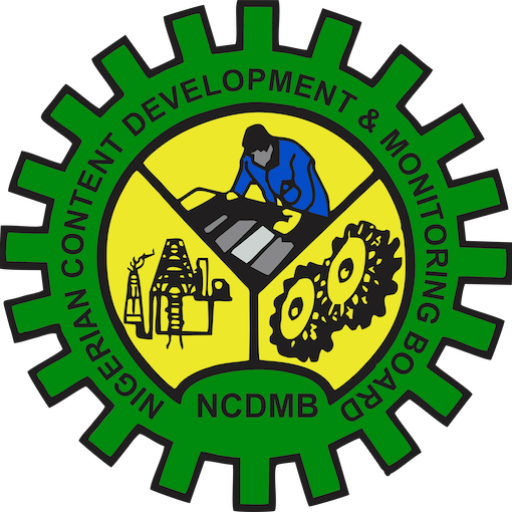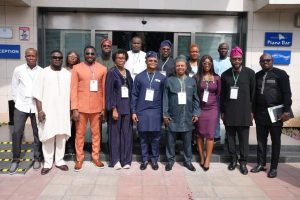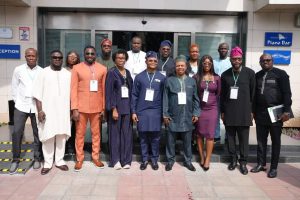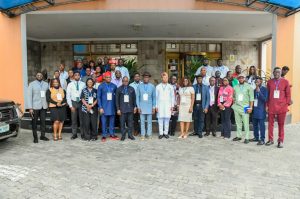The Nigerian Content Development and Monitoring Board (NCDMB) in conjunction with the Anti-Corruption Academy of Nigeria (ACAN), an organ of the Independent CorruptPractices Commission (ICPC) organised a 2-day sensitization workshop for the Board’s staff in Abuja recently.
Delivering the keynote address at the workshop which is focussed on “Anti-Corruption Requirements and Best Practices in Public Procurement,” the Executive Secretary, NCDMB, Engr. Simbi Kesiye Wabote explained that the workshop will equip the participants with the best Anti-Corruption practices and procedures. He hinted that some of the errors committed by public servants are not deliberate but due to a lack of understanding of the procurement best practices.”
He noted that the partnerships with ICPC and ACAN will ensure that ministries, departments and agencies (MDA’s) are well equipped and up to date with the Anti-Corruption Best Practices, adding that public servants need these kinds of training in other for them to understand and protect themselves and their organisations from corruption and corrupt practices. He urged “the participants to learn and to also implement the laid down processes to manage corrupt practices and conflict of interest.”
Providing an update on the Board’s effort towards anti-corruption, Wabote mentioned that the Board has since established a Corruption Desk in-house as suggested by ACAN, to ensure a high level of transparency and accountability across operations. He noted that the Board formulated and published its “Procurement Policies and Procedure Manual” to enhance compliance with Bureau of Public Procurement (BPP) requirements relating to budgeting, adverts, thresholds, evaluation, recommendations, contract awards, delivery, and close-out. In his words, “He observed that these policies have guided the Board in its activities internally and in its regulatory role in the oil and gas industry.
The NCDMB boss reiterated that the Board has methodically implemented the provisions of the Act which has helped to change the narrative of the oil and gas industry.
Providing an overview of the Board’s activities, processes, and initiatives geared toward the actualization of its mandate, the Executive Secretary informed that the Board had identified and deployed resources to five strategic intervention areas: supply chain, human capacity development, infrastructure development, funding, and local asset utilization.”
“With the Board’s focus primarily on domiciliation and domestication of value-adding activities, the turnaround in local content growth has been that phenomenal.” Wabotenoted.
In his address, the Chairman, Independent Corrupt Practices and Other Related Offences Commission, Professor Bolaji Owasanoye, stated that the workshop will enlighten and highlight basic ethical principles in public services processes like procurement, accountability and partiality. He added, the workshop will help participants to manage corrupt practices and conflict of interests.
Owasanoye who was represented by the Secretary of the Commission Prof. Musa Usman Abubakar, he urged participants to adhere and to appreciate the Do’s and Don’ts of the procurement processes and show integrity in handling affairs in the public service.
In his remarks, the Provost, ACAN Prof. Olatunde Babawale, Represented by the Director of ACAN, Barr. Okechukwu Igbudu, commended the Executive Secretary of NCDMB for the Board’s sponsorship of the workshop. He challenged theparticipants to be ambassadors in the reduction of corruption and corrupt practices in their respective organisations.
Earlier in his welcome address, the Director Legal Services, NCDMB, Barr Babangida Umar appreciated the Executive Secretary and the Chairman of ICPC for supporting the workshop. He mentioned that the workshop will also foster better collaboration between the two organisations.
Discover more from Nigerian Content Development & Monitoring Board
Subscribe to get the latest posts sent to your email.











